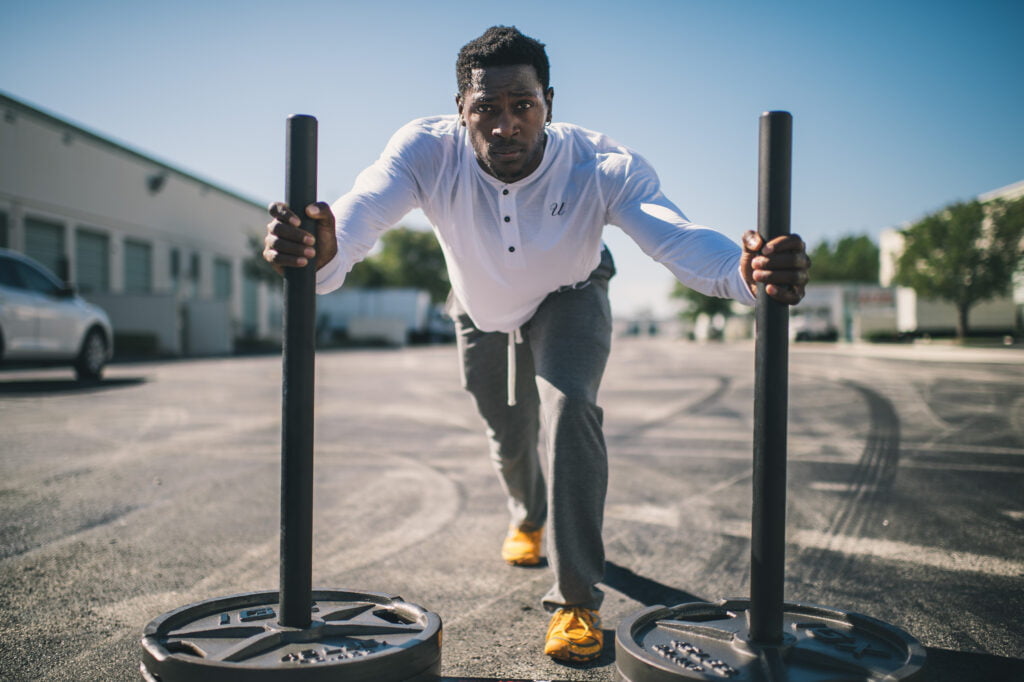What does a body weight scale really tell us about what is happening in the body? Well firstly, I think what we are all looking for when we look at the scale is a reduction in weight. But is this even body fat?
The basic science of weight loss is that in order to lose 1 pound of fat, there must be a calorie deficit of about 3500 kcal. This either needs to be achieved with expending those calories through exercise, or consuming 3500 kcal less over the course of a week.
This is generally difficult to achieve with exercise alone. However, it is possible that you could have lost over a pound of body fat, yet you step on the scale, only to weigh exactly what you did the week before. But why?
In terms of body composition, we know that we are all made up primarily of a combination of bone, muscle, fat and water. The ratio or percentage of these components is influenced by age, sex, genetics, etc, but some factors which I have listed below, can effect the number on the scales, even on a daily basis.Hormones – Women can gain us much as several pounds in the days/week leading up to menstruation. This is in the form of water retention (bloating), and even slight increases in body fat due to cravings and extra eating during this time.

- Excessive sweating in exercise or high temperatures can cause weight fluctuation. You can lose several pounds of water through sweat during an intense exercise session. If you weigh yourself right before and right after a workout, you can get an idea of how much weight you can sweat off.

2. Hydration levels – Hydration levels can change drastically leading to weight gain, and loss. Based on the food and drink you consume, and exercise you engage in, you can gain/lose as much as a couple pounds in one day.
- Eating salty food can lead to water retention and weight gain.
- Drinking alcohol causes dehydration and a temporary loss in water weight.
- Excessive sweating in exercise or high temperatures can cause weight fluctuation. You can lose several pounds of water through sweat during an intense exercise session. If you weigh yourself right before and right after a workout, you can get an idea of how much weight you can sweat off

3. Weight/Resistance Training – Most importantly, if you have been doing any weight/resistance training, your body composition changes completely, sometimes leading to weight gain. When you first start a strengthening routine (especially in the beginning), you can gain as much as a pound of muscle every 2 weeks. If you are also losing about a pound of fat every week, you are only looking at a loss of about 2 pounds a month. This may seem discouraging or like it’s hardly worth the effort, but the changes in metabolic function and composition are nothing short of amazing.
When we put on lean mass (muscle) we are improving bone strength, increasing metabolism, and decreasing your disease risk factors. Heart disease, type 2 diabetes, high cholesterol, high blood pressure, arthritis, cancer and alzheimer’s risk are all decreased with regular exercise. Not only that, muscle is far more dense, and takes up a lot less space in the body than fat (which means looking and feeling slimmer).
So with all of this in mind, it seems that the number on the scale may not be the best indicator of progress. So how can we measure what is happening in the body in a way which shows we are making progress and achieving goals?

The first and most important measurement I take as a Nutritionist is waist circumference. A higher waist circumference indicates higher amounts of tummy fat, and also higher risk of metabolic disease. Remember what I said about muscle taking up far less space than fat?
That means that you can maintain the same weight, but lose inches off of your waist and body. So instead of weighing yourself weekly (or daily for some of you), get a soft measuring tape and measure your waist, arms and even legs. You can set goals for yourself with the help of your trainer or nutritionist to lose inches, and reward yourself when you see progress. You can even measure your success by the clothes you now fit into. But for now, leave the scale out of the picture, or save the weight for maybe a once a month measure.
And finally, but most importantly, if you find yourself in a position where you haven’t had any significant changes regardless of all the training you have done, remember that you can’t see what is happening on the inside. You are healthier, will likely live longer, and are probably happier for it. So be thankful, feel proud and keep up the hard work.

Mel Cronshaw BSc (Hons), ANutr

